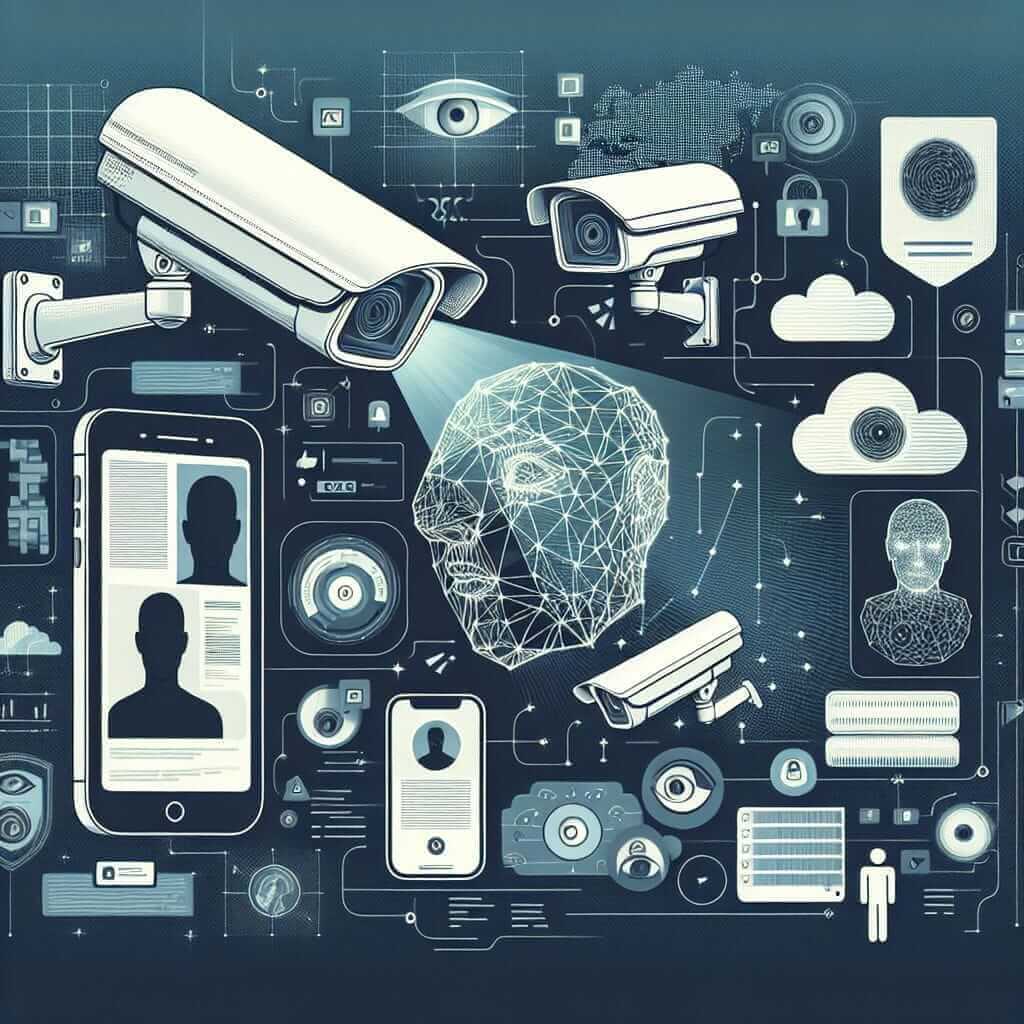In recent years, the issue of how technology affects our privacy has become an increasingly prevalent topic, both in academic discussions and daily life. This theme appears frequently in IELTS Writing Task 2, given its relevance in today’s digitally connected world.
Introduction
With the rapid advancement of technology, concerns about privacy have never been more pressing. Frequently appearing in IELTS Writing Task 2, this topic requires candidates to discuss how technology impacts individual privacy and propose solutions or weigh the pros and cons of technological advancements. Based on my research, here are a few sample questions that might appear in the exam:
Sample Topics:
- Some people believe that technology has significantly eroded personal privacy. To what extent do you agree or disagree with this statement?
- Discuss the effects of advanced surveillance technology on privacy. What measures can be taken to ensure privacy is protected?
- Digital technology, such as social media, has negatively impacted personal privacy. Discuss this view and give your opinion.
Choosing and Analyzing the Prompt
Selected Topic:
Some people believe that technology has significantly eroded personal privacy. To what extent do you agree or disagree with this statement?
Task Analysis:
- Identify the Key Terms: “Technology,” “eroded,” “personal privacy”
- Understanding the Task: You need to present an argument either in favor or against the idea that technological advancements have diminished personal privacy. Provide examples, logical reasoning, and potentially discuss both sides before giving a clear stance.
- Structure of the Essay:
- Introduction: Paraphrase the topic and state your thesis.
- Body Paragraph 1: Discuss arguments supporting the notion that technology has eroded privacy.
- Body Paragraph 2: Present counterarguments and scenarios where technology enhances privacy.
- Conclusion: Summarize the key points and restate your position clearly.
The Sample Essay
Introduction
In the contemporary digital age, the ubiquity of technology has raised substantial concerns about the erosion of personal privacy. While technology undeniably offers numerous benefits and conveniences, its potential to infringe upon individual privacy cannot be overlooked. This essay will discuss the extent to which I agree with the proposition that technology has significantly eroded personal privacy.
Body Paragraph 1
The primary argument in favor of the view that technology has diminished personal privacy revolves around the intrusive nature of digital surveillance. Advanced surveillance systems, including CCTV cameras, biometric identification, and data mining techniques, are prevalent in many aspects of daily life. For instance, social media platforms collect vast amounts of personal data which can be used for targeted advertisements or even sold to third parties without users’ explicit consent. Additionally, governments and corporations often leverage these technologies to monitor and track individuals, sometimes with little accountability or transparency.

Body Paragraph 2
On the other hand, it could be argued that technology also provides tools to enhance and protect privacy. Encryption techniques, for example, ensure the secure transmission of data, making it difficult for unauthorized parties to access sensitive information. Similarly, technologies such as Virtual Private Networks (VPNs) and privacy settings on social media platforms empower users to safeguard their personal data. Moreover, regulatory frameworks like the General Data Protection Regulation (GDPR) in Europe are steps towards ensuring that technology adheres to stringent privacy standards.
Conclusion
In conclusion, while technology can potentially erode personal privacy, it also offers means to protect it. The true impact of technology on privacy ultimately depends on how it is used and regulated. Therefore, I partly agree with the statement that technology has significantly eroded personal privacy, but I also recognize the protective measures that can be implemented to mitigate these risks.
(Word Count: 292)
Tips for Writing
- Coherence and Cohesion: Ensure each paragraph has a clear main idea and is logically connected to the next.
- Vocabulary: Use advanced, topic-specific vocabulary but ensure it reads naturally.
- Grammar: Use a mix of simple and complex sentence structures to demonstrate grammatical range.
Essential Vocabulary
- Ubiquity (n) [juːˈbɪkwɪti]: The fact of appearing everywhere or being very common.
- Erosion (n) [ɪˈroʊʒən]: The process of gradually wearing away.
- Surveillance (n) [sɜrˈveɪləns]: Close observation, especially of a suspected spy or criminal.
- Biometric (adj) [ˌbaɪoʊˈmɛtrɪk]: Relating to the use of personal physical characteristics.
- Encryption (n) [ɪnˈkrɪpʃən]: The process of converting information or data into a code to prevent unauthorized access.
Conclusion
To sum up, the impact of technology on privacy is a nuanced topic that demands careful consideration and balanced arguments. Students should practice writing both in favor and against such propositions to build a more comprehensive understanding. They might encounter variations of this topic such as the impact of biometric technology on privacy or whether digital technology poses a serious threat to privacy—practicing these variations will help in mastering the topic.
For further reading and examples, you might want to check this post on the impact of technology on privacy and more details on digital technology’s role in privacy.